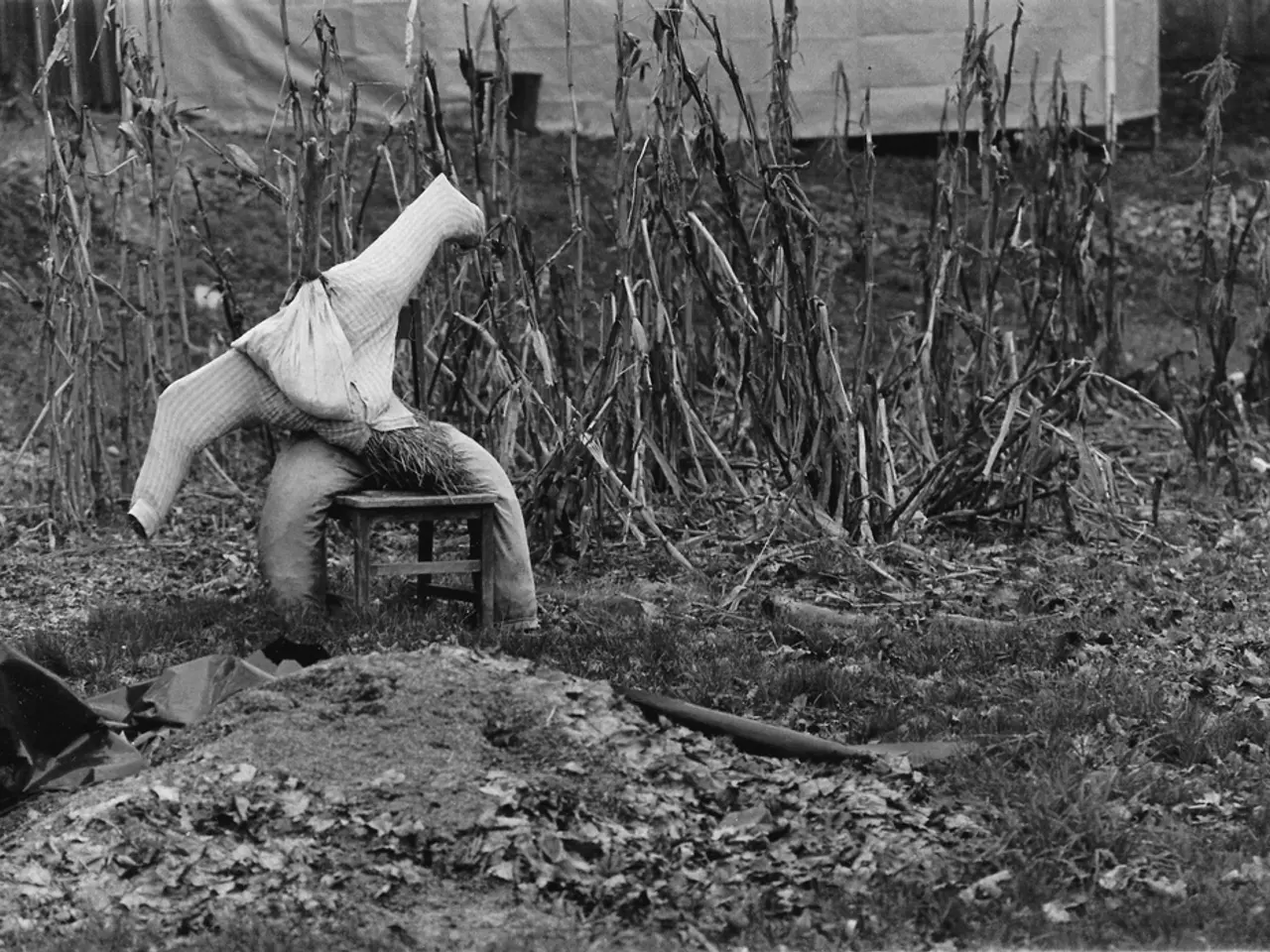Garden Woodchuck Repellents: Keys to Keeping Them Away from Your Yard
In the realm of gardening, groundhogs, also known as woodchucks, can pose a significant challenge. These burrowing creatures can cause damage to gardens with their tunnelling habits. However, understanding the smells that groundhogs dislike can help those facing a groundhog problem seek a humane solution.
Groundhogs have a strong aversion to certain smells, such as garlic and spicy materials like hot pepper. By employing scent- and taste-based methods, gardeners can effectively deter groundhogs from their gardens.
One such method is the use of castor oil sprays. Mix about 1/4 cup to 3 tablespoons of castor oil with 1 tablespoon of dish soap and 1 gallon of water, then spray around garden areas and groundhog burrows. The smell and taste repel groundhogs as well as other burrowing pests.
Epsom salt is another effective deterrent. Sprinkle it generously along garden perimeters and burrows to create an uncomfortable environment, which encourages groundhogs to move away. Reapply after rain, as water washes it away.
Hot pepper-based sprays are also useful. Blend 2 tablespoons of cayenne pepper or hot sauce with a quart of water and dish soap, then spray on plants or soil near burrows. The spicy taste deters groundhogs but does not harm them.
A homemade spray made by steeping crushed garlic cloves and hot peppers in water overnight can be strained and sprayed around plants showing damage to repel multiple pests including groundhogs.
Mint plants or sprays can deter groundhogs due to their dislike of the scent, but be mindful that mint spreads rapidly and requires containment.
Periodic reapplication is necessary for sprays (especially after rain), and these natural repellents tend to deter rather than eradicate groundhogs. Combining them with physical barriers for immediate protection can improve results.
Fencing and burrow blockades can be used as physical barriers to prevent groundhogs from breaching property boundaries. Live traps should be used for groundhog removal, ensuring they are large enough for the groundhog.
Groundhogs are sensitive to environmental disturbances, both natural and human-induced. Habitat modification can discourage woodchucks by removing debris, trimming vegetation, maintaining a neat, mowed lawn, mulching garden areas with welded wire mesh, and protecting gardens and livestock with fencing.
Seal vacant burrows using soil and newspaper to prevent reopening. Strategically placing strong-smelling substances like urine-saturated clips of grass clippings can repel woodchucks due to their sensitive sense of smell.
Larry Meyers, a gardening expert with over 10 years of experience, aims to share gardening knowledge and create a one-stop shop for gardening information. Before relocating trapped groundhogs, check local laws and regulations regarding the relocation of wildlife. Apples, carrots, and lettuce are effective baits for groundhog traps.
In summary, consistent and combined use of castor oil, Epsom salt, hot pepper-based sprays, garlic mixtures, and fragrant plants like mint offers an effective, humane, and environmentally friendly way to keep groundhogs away from your garden. Effectively deterring groundhogs involves using natural repellents and establishing physical barriers.
Implementing fragrant home-and-garden elements, like mint plants and garlic mixtures, can help deter groundhogs based on their dislikes. Maintaining a well-maintained home-and-garden lifestyle, with a neat, mowed lawn and mulched garden areas with welded wire mesh, can also discourage groundhogs.




